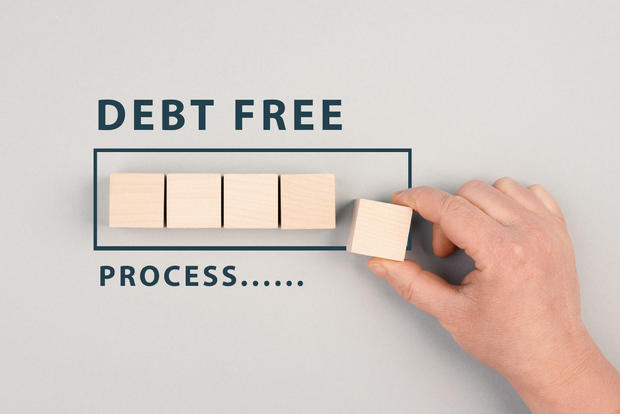How long does it take to settle your credit card debt?
With the average credit card interest rate sitting at an unprecedented 23%, many credit card users have found themselves facing serious financial challenges. For example, about 20% of cardholders are maxed out currently and the number of delinquent credit card accounts is rising, according to recent reports. But today's high interest rates are just one part of the issue. The way credit card interest is calculated also helps transform what could be a manageable balance into a daunting financial burden.
Unlike simple interest, which is calculated only on the principal amount, credit card interest compounds — meaning it's calculated (typically daily) on both the principal and the accumulated interest from previous periods. This can cause credit card debt to grow exponentially, making it increasingly difficult to keep up with the payments.
As a result, many cardholders are looking for alternative ways to manage their debt, like debt forgiveness (or debt settlement). With credit card debt settlement, the goal is to negotiate with creditors to pay less than the full amount owed. The remainder of what is owed is then forgiven, which can provide serious relief to those who are struggling with their card debt. Before you take this route, though, it's important to understand the timeline involved and the factors that influence it.
Explore your credit card debt relief options and consult with an expert online now.
How long does it take to settle your credit card debt?
While you can try to settle your credit card debt on your own, many cardholders opt to enroll in a credit card debt forgiveness program through a debt relief company instead. While there are fees for this service, working with experts on your debt settlement can maximize the chances of a positive outcome, as their experience with settlement negotiations comes in handy during the process. So, in many cases, it could pay off to do so.
The timeline for settling your credit card debt with the help of a debt relief program can vary significantly depending on a range of factors. On average, though, it typically takes between 24 to 48 months to complete this type of program. That time frame represents the period from when you enroll in a debt settlement program to when all enrolled debts are settled and paid off.
It's important to note that this is just an average, and each experience can differ greatly. Some cardholders may see their first debt settled in as little as four to six months after enrollment, while others might not see results for a year or more. The entire process of settling all debts usually takes at least 24 months, though, with many programs designed to last 36 to 48 months.
During this time, you will typically stop making payments to your creditors and instead make monthly payments to the debt relief company, which deposits the money into a dedicated account. These funds accumulate over time and are used to negotiate lump-sum settlements with creditors. The negotiation process itself can take several months for each debt, as debt relief companies work to secure the best possible settlements.
Find out how the right debt relief program could help you get out of debt now.
What factors impact the debt settlement timeline?
There are several key factors that can influence how long it takes to settle credit card debt, including:
- Total debt amount: Generally, the more debt you have, the longer it will take to settle, as larger debts require more time to accumulate sufficient funds for settlement offers.
- Number of creditors: Having debts with multiple creditors can extend the timeline, as each creditor needs to be negotiated with separately.
- Creditor willingness to negotiate: Some creditors are more open to settlement offers than others. A creditor's willingness can significantly impact how quickly a debt can be settled (if at all).
- Ability to save: The rate at which you can contribute to your settlement fund affects the timeline. Those able to set aside larger monthly amounts may settle their debts more quickly.
- Debt age: Older debts are often easier to settle, as creditors may be more willing to accept a reduced payment on long-standing debts.
- Legal actions: If a creditor pursues legal action, it can complicate and potentially extend the settlement process.
- Economic conditions: Broader economic factors can influence creditors' willingness to settle — and the terms they're willing to accept.
- Debt settlement company's expertise: The experience and negotiation skills of the debt settlement company can affect how quickly and effectively debts are settled.
The bottom line
While credit card debt forgiveness or debt settlement can provide serious relief in certain situations, it's important to maintain realistic expectations. Settling credit card debt is rarely a quick fix, and even accelerated timelines typically involve months or years of commitment. Your creditors aren't required to settle your debts, either.
Still, the potential for significant debt reduction can mean the wait and the extra work is worthwhile, especially if you're struggling with overwhelming credit card debt. As with any major financial decision, though, it's crucial to thoroughly research and understand the process and consider all of your available options before committing to a debt settlement program.




